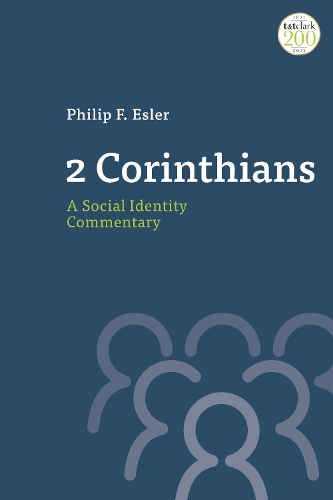
2 Corinthians: A Social Identity Commentary
(Paperback)
Available Formats
Publishing Details
2 Corinthians: A Social Identity Commentary
By (Author) Philip Esler
Bloomsbury Publishing PLC
T.& T.Clark Ltd
20th April 2023
United Kingdom
Classifications
Tertiary Education
Non Fiction
Criticism and exegesis of sacred texts
New Testaments
227.307
Physical Properties
Paperback
440
Width 138mm, Height 216mm, Spine 26mm
540g
Description
Philip F. Esler provides a comprehensive coverage of the issues in 2 Corinthians from the perspective of social identity, with a focus on Pauls leadership. Esler enlists social identity theoryin critical dialogue with existing scholarshipto show how Paul sought to persuade the Corinthian Christ-followers to adopt certain views on four critical issues that had arisen in his relationship with them, with his discourse demonstrably reflecting the ancient Mediterranean culture they shared. Two introductory chapters set out those four issues, summarise the events reflected in 1 and 2 Corinthians, make an initial case for the integrity of the letter against partition theories, explain and defend the use of social identity theory in biblical interpretation, and describe the social identity approach to leadership. In the commentary, Esler explores how Paul re-establishes his leadership role by reconnecting with the Corinthians, urges their participation in the collection for Jerusalem, and defends his position against recently arrived opponents, all the while reinforcing his addressees social identity as Christ-followers. Prominent features of the commentary fostered by its social identity perspective include its cumulative case for the letters unity, for Pauls opponents being similar to those in Galatia, and for the interweaving of social and theological dimensions in the text.
Reviews
While "social identity" is the underlying guiding focus, Esler's commentary provides a well-informed and illuminating analysis of the letter as a whole and the rich Pauline theology it expresses. * The Bible Today *
Philip Eslers 2 Corinthians: A Social Identity Commentary is not only a careful and sensitive reading of a very difficult and complex Pauline letter, but is effectively a primer for Social Identity Theory, illustrating what new insights SIT has to contribute to understanding the interactions between the Corinthian Christ group and its prototypical values on the one hand, and Pauls role as an exemplar and entrepreneur on the other. Esler engages an impressive array of exegetical and theoretical issues, and yet produces a clear and readable commentary. * John S. Kloppenborg, University of Toronto, Canada *
Author Bio
Philip F. Esler is Portland Chair in New Testament Studies at the University of Gloucestershire, UK.
